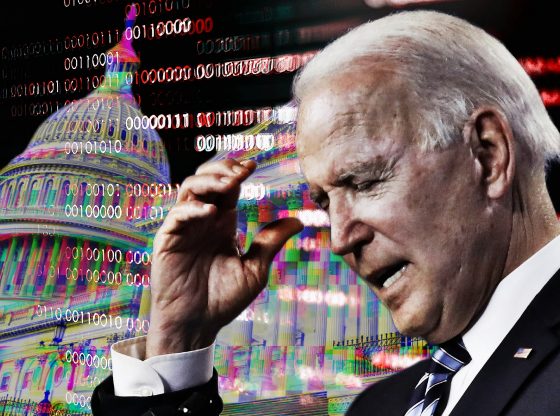Related to my article on the FBI seeing more Russian disinformation than hacking against the 2020 elections, the forward-leaning efforts of the Pentagon’s relatively new U.S. Cyber Command may be a reason why. As reported by the Washington Post, U.S. Cyber Command is “quietly pushing ahead…to ‘defend forward’ against Russian influence operations — which means getting inside Russian cybernetworks to detect and disrupt attacks.”
These efforts began not long after President Donald Trump elevated USCYBERCOM from a sub-unified command to a Unified Combatant Command in August of 2017 making it responsible for all U.S. cyberspace operations.
A February 2019 Washington Post story describes these very direct and menacing “defend forward” Cyber Command efforts:
Like other U.S. cyberwar activities, the disruption effort against Russia is cloaked in secrecy. But it appears to involve, in part, a warning to suspected Russian hackers that echoes a menacing phrase that’s a staple of many fictional crime and spy thrillers: “We know where you live.”
Beginning last fall, before the midterm elections, Cyber Command began directly contacting Russians who were linked to operations, such the Internet Research Agency, that allegedly helped coordinate Moscow’s campaign to subvert the 2016 presidential election. The apparent aim was to put people on notice that their covers had been blown, and that their ability to work and travel freely might be affected.
A 2018 indictment describing a Russian bookkeeper’s role in managing a “conspiracy . . . to sow division and discord in the U.S. political system,” provided a public catalogue of many other potential Russian operatives, who might be targets of similar Cyber Command warnings. That indictment blew the cover of these Russian troll farm managers.
These aggressive U.S. military efforts appeared to succeed during the 2018 midterm elections and have only grown since. In a Foreign Affairs piece on Aug. 25, Cyber Command chief, Gen. Paul M. Nakasone, and his senior advisor, Michael Sulmeyer, wrote that Cyber Command has expanded the “hunt forward” strategy that “disrupted a concerted effort to undermine the midterm elections” in 2018.
The Washington Post notes a U.S. defense official discussing the 2020 campaign when it writes that:
Cyber Command’s operations against Russia in recent months have been “very aggressive and very effective,” said one defense official — to the point that they’ve disoriented some Russian operations planners. Thanks to these efforts, it will be “virtually impossible” for the Russians or anyone else to penetrate voting systems in the roughly 8,000 jurisdictions around the country.
EDITORS NOTE: We at AAN appreciate you and your support of our work to counter the mainstream media narrative. Please share our news with your friends and family and encourage them to sign up for our newsletter.
Advertisement
Send a Personal Get Well Message to President Trump & the First Lady















We got election hackers coming from the woodwork. And the dumbocraps as the worst.
Best news I’ve heard all day! Maybe we can also stop the dems from cheating and perhaps for the first time in years, have a fair election!
Well, seeing the the Russians have demonrat operatives all over the US, I hope they do more than watch cyber attacks. They should be keeping an eye on the post office, as well as poling places.
good,then we don’t have to worry about a fix election ,brought on by the demonic side of america.
I DO hope they’re using the SAME methods against China
Don’t put too much confidence in Foreign Affairs. It has it’s own agendas and fairness isn’t necessarily included.
This is only the tip of the iceberg as was recently shown by Project Veritas catching ballot harvesting on video in Ilhan Omars district. We need voter ID and vote in person!